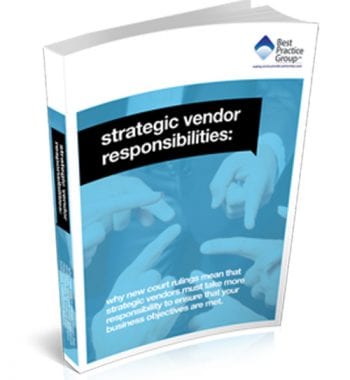 As we enter the tenth week of ‘Lockdown’ here in the UK, we have seen the government going to significant lengths to protect businesses and jobs. It has invested funds and resources at unprecedented levels on schemes, loans, packages and guidance to help us through these extraordinary times.
As we enter the tenth week of ‘Lockdown’ here in the UK, we have seen the government going to significant lengths to protect businesses and jobs. It has invested funds and resources at unprecedented levels on schemes, loans, packages and guidance to help us through these extraordinary times.
And, while I am sure in hindsight, both ourselves and opposing politicians will find some decisions have been made by the government incorrectly, given the fact that they are all working with very limited information, it seems likely, that for commercial interests at least, the Johnson government has pulled out as many stops as they could reasonably have been expected to.
Fair and Balanced Strategic Relationships
Last week, in our article Covid-19: Government Guidance on Responsible Contractual Behaviour; 4 observations from real life to make this work, we reported on new Cabinet Office guidelines on how clients and their strategic suppliers should work with one another during this crisis.
The aim of the Guidance is to avoid issues escalating unnecessarily and to enable contracts and strategic relationships to progress, even if at a different pace. And at the same time, to protect the viability of trusted suppliers through an adapted payment profile and schedule of work.
This Guidance essentially looks at how agreements should be managed in these unusual times, and how our treatment of one another now could impact on relationships going forward.
At the core of the Guidance is that the suggestion that contracting parties should act ‘responsibly and fairly’ in their response to issues caused by the coronavirus pandemic. This phrase ‘responsibly and fairly’ appears multiple times in the Guidance (ten times over a five-page document). We all have a sense of what ‘responsibly and fairly’ means: the key is how to achieve this without adversely undermining existing contractual arrangements.
In this respect, the Guidance encourages the parties to:
- Act in a spirit of co-operation;
- Aim to achieve practical, just and equitable outcomes;
- Aim to ensure the preservation of contractual and economic activity;
- Avoid lengthy litigation – ideally through the use of negotiation, mediation and other ‘alternative’ dispute resolution procedures.
Our article last week focused on the behaviours that we can all demonstrate to support those we rely upon throughout the pandemic – trust, flexibility, collaboration and learning lessons from challenging times.
The Procurement Implications of the Guidance
Thanks to the input and research of a very good friend of our firm, Paul Golding of TRG Solicitors, we are able to delve deeper into the regulations themselves and look at how they could also impact on your procurement behaviour throughout this Covid-19 situation.
Although not expressly presented in the Guidance, it does seem to implicitly envisage, if not actively encourage, a raft of sensible contractual variations as a result of the virus. What the Guidance is very clear on though is that the advice contained within its pages should not be considered as binding, but purely as ‘guidance’. This does not override any other legal duty or contractual obligation parties may be subject to.
The Guidance is a follow-up to the Procurement Policy Note PPN 02/20 issued back in March 2020. This PPN mandated contracting authorities to continue ‘payment as normal’ even if service delivery is disrupted or temporarily suspended. In some cases, public sector bodies are even encouraged to accelerate payment in order to maintain supplier cash flows.
Note that at present, the PPN mandate applies until at least the end of June 2020. It makes very clear that “the contract should return to its original terms as soon as the impact of the COVID-19 outbreak on the relevant contract is over”.
The Guidance on the other hand, seems to be encouraging more long-term, if not even permanent variations.
PPN 01/20, also issued in March 2020, deals explicitly with permitted contract variations under the Procurement (‘Public Contract’) Regulations 2015. Regulation 72 (1) governs permitted contract variations. It states (amongst other grounds):
“Contracts … may be modified without a new procurement procedure … (c) where all of the following conditions are fulfilled:
- the need for modification has been brought about by circumstances which a diligent contracting authority could not have foreseen;
- the modification does not alter the overall nature of the contract;
- any increase in price does not exceed 50% of the value of the original contract.
Contracting authorities should keep a written record of any decision taken to demonstrate their thinking and why it is believed that the variation meets these criteria. Details of the modification will probably need to be published by way of an OJEU notice referring to Regulation 72(1)(c).
Conclusion
Of course, this does beg questions as to whether the need for the modification could have reasonably been foreseen prior to the Covid-19 situation escalating and whether the modification materially alters the overall nature of the contract in terms of time, cost and scope.
Strictly speaking, it may be very difficult to bring a modification fully within the parameters of the Regulation. In reality, you have to consider whether third parties are going to spend large sums of money challenging extension decisions reached in good faith in line with the spirit of the Guidance that has been issued. If they do, we would anticipate that contracting authorities will be given the benefit of the doubt given the current crisis.
Photo credit: Shutterstock

